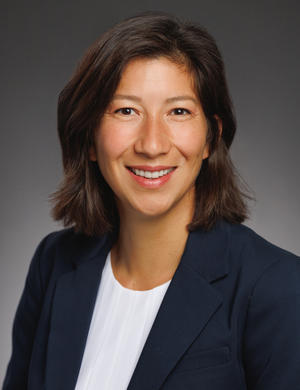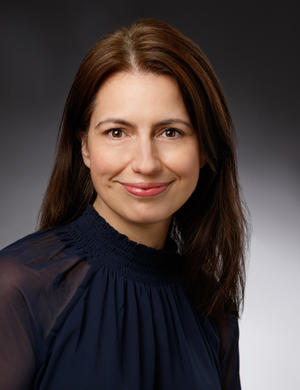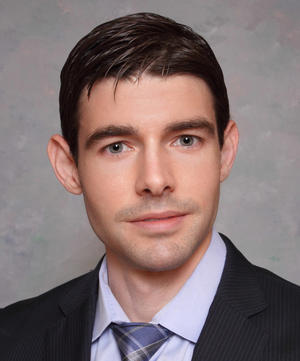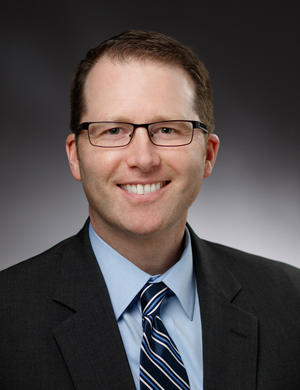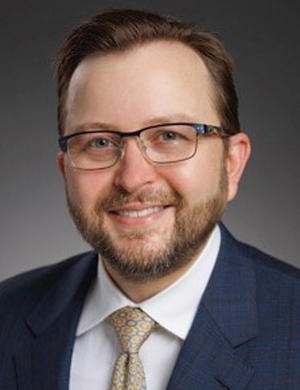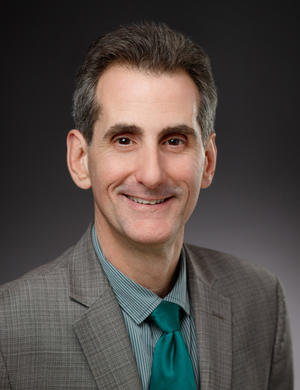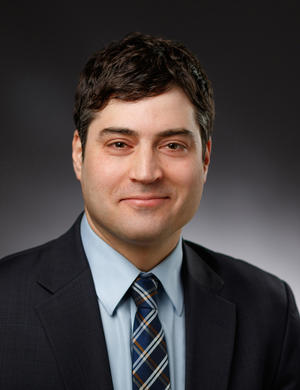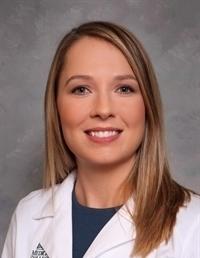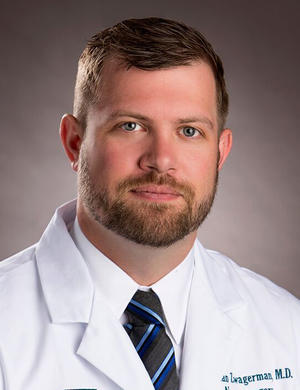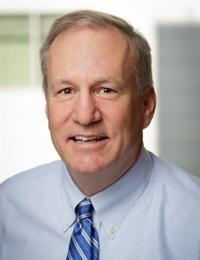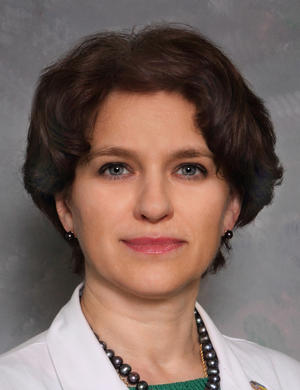Our approach to treating people who have head and neck cancers is multidisciplinary and evidence-based. Our highly skilled physicians are experts in their fields, and that keeps us on the leading edge of new research and treatment approaches. We have the most fellowship-trained otolaryngology (ear, nose and throat) specialists in the state. We also have an unwavering focus on patient care and take a personalized approach to treating each patient. The following physicians and staff specialize in head and neck cancers.
Head and Neck Cancer Treatment Team Expertise - Video FAQ
Musaddiq Awan, MD, radiation oncologist, talks about the benefits his team's expertise offers head and neck cancer patients.
Our head and neck cancer treatment team treats hundreds of patients a year between our surgeons and different radiation oncologists, so having that specialized experience and working with that anatomy on a day-to-day basis is very helpful.
If I see a rare or common cancer I have tons of experience to go back upon to understand the nuances of that particular disease process. Another doctor may see a rare cancer once in their career, while I may see a rare cancer multiple times a year.
Understanding the details of the anatomy and being able to carefully design a plan using that knowledge allows us to take the best care of our patients. The other thing that's really important is that head and neck cancer is toxic and getting patients through treatment can be very difficult at times.
Being able to have a lot of experience and being able to understand how to manage these side effects on a day-to-day basis allows us to get patients of all ages through treatment. It also allows us to customize our treatment for those individual patients. Patients who are elderly and sick may not have the same treatment plan as patients who are young and healthy. Even in a situation of older and frail patients, we feel confident in managing side effects and getting them through a very difficult treatment.
Musaddiq Awan, MD, radiation oncologist, explains why head and neck cancers need a team of experts who strongly understand the head and neck anatomy and disease process to treat it successfully.
Head and neck cancers require a specific type of expertise to treat successfully because the head and neck have very complicated anatomy. The cancers are not all that common relative to say breast cancer or lung cancer or prostate cancer. A strong understanding of that anatomy, understanding the disease process, working with a close team of surgeons who also understand that anatomy — all comes into play when designing a treatment plan that optimally caters to the patient, including minimizing side effects and also improving quality of life while maintaining cancer control.
One of the difficult things about head and neck cancer treatment is it's tough. It's toxic. It makes patients sick. Because of those things, trying to work that balance between cancer control and controlling toxicity is an art.
Having more experience and having a lot of members on the team who exclusively treat head and neck cancer — a significant portion of their practices in head and neck cancer — allows us to do the best things for patients.
Stuart Wong, MD, medical oncologist, describes immunotherapy and other cellular therapies that offer hope for patients along with fewer side effects and better outcomes.
Immunotherapy is probably one of the most exciting parts of the care that we provide to patients. It is now integrated in many components of the therapy that we can provide for patients. Immunotherapy means that we release the brakes on the immune system, so that the immune system is allowed to identify cancers that should not be there and to get rid of them. We have found that these new immunotherapies in many respects can be more powerful than the old drugs that we used — that are essentially poisons.
We're sometimes getting the best of both worlds. We have patients that have less side effects and, in fact, better outcomes. Immunotherapy is now the part of therapy we are most excited about and offers our patients the greatest amount of hope.
Cellular therapy is a new, experimental type of therapy that involves taking immune cells out of the body expanding them and delivering them back to patients. Another form of this therapy is a type of vaccine therapy where we take components of the virus and deliver it back to the patient to stimulate an immune response. We have some very special studies here that are only open at a few other institutions, but certainly this is a type of therapy that we're going to see more and more of, and that we think offers great hope to patients in the future.
Stuart Wong, MD, medical oncologist, talks about the types of clinical trials offered by the Froedtert & MCW Cancer Network.
We offer several types of clinical trials. In fact, our portfolio for clinical trials is very broad. We offer clinical trials basically for every stage of disease — including before surgery, during surgery and after surgery. We also offer clinical trials for advanced cancers where the cancer returns or spreads elsewhere in the body. This broad portfolio of clinical trials offers all of our patients the possibility of new and experimental and cutting-edge therapies.
Stuart Wong, MD, medical oncologist, explains the importance of participating in cancer clinical trials.
Participation in clinical trials is very important. We have patients coming to us demanding that clinical trials be part of their care. That is because now there is a public understanding that this is the best care that can be provided for patients, so we try to offer clinical trials for every patient.
The best treatment is standard of care, but sometimes the best treatment is a therapy that may push the envelope further and give patients a better outcome and, hopefully, is something that we can offer to every single person that walks through the door. Ultimately, their choice may be to not go on a clinical trial, but at least it's an option for them. Participation in the clinical trial is also important because it offers the patient new therapy that may not be offered anywhere else.
Sometimes patients are in situations where they have exhausted all of the standard types of care, and experimental treatment is something that gives them new hope that they would not have otherwise. There is data that that indicates that the best patient outcome occurs in high-volume centers such as ours.
High-volume centers frequently provide experimental therapy or clinical trials for patients. Those go hand in hand, so we are committed to provide this access to patients so that they have the most choices including clinical trials. Clinical trials also are highly regulated, so we have to follow a very specific script in order to treat patients just so. This is not to say that you wouldn't get good care outside of a clinical trial, but it is taken up several notches so that we can ensure the patients the safest possible quality of care when they receive treatment on a clinical trial.
Head and Neck Cancer Surgery, Thyroid and Parathyroid Surgery
Sino-Nasal and Anterior Skull Base Surgery
Ear and Lateral Skull Base Surgery
Facial Plastic and Reconstructive Surgery
Neurosurgery - Anterior and Lateral Skull Base Surgery
Endocrinology
Head and Neck Medical Oncology
Head and Neck Radiation Oncology
Head and Neck Radiology
Physical Medicine and Rehabilitation
Advanced Practice Providers
Audiology
Head and Neck Pathology
Clinical Dietetics
Virtual Visits Are Available
Safe and convenient virtual visits by video let you get the care you need via a mobile device, tablet or computer wherever you are. We’ll gather your medical records for you and get our experts’ input so we can offer treatment options without an in-person visit. To schedule a virtual visit, call 1-866-680-0505.
Recognized as High Performing by U.S. News & World Report
Froedtert Hospital is recognized by U.S. News & World Report as high performing in three adult specialties and 16 procedures and conditions, including cancer.

